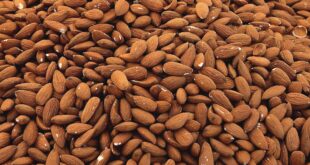Propionates, salts of a short-chain fatty acid called propionic acid, are widely used in baked goods, animal feeds and artificial flavorings. Although generally recognized as safe by the U.S. Food and Drug Administration, the metabolic effects of propionate consumption in humans were unclear until now. According to new research that combined data from a randomized placebo-controlled trial in humans and mouse studies, propionates can trigger a cascade of metabolic events that leads to insulin resistance and hyperinsulinemia. The findings, published in the journal Science Translational Medicine, also showed that in mice, chronic exposure to propionates resulted in weight gain and insulin resistance.
Propionates are potent inhibitors of molds that are widely used as a food preservative.
“Understanding how ingredients in food affect the body’s metabolism at the molecular and cellular level could help us develop simple but effective measures to tackle the dual epidemics of obesity and diabetes,” said senior author Professor Gökhan Hotamışlıgil, a researcher at Harvard T.H. Chan School of Public Health and Broad Institute of MIT and Harvard.
In the study, Professor Hotamışlıgil and colleagues administered propionate to mice and found that it rapidly activated the sympathetic nervous system, which led to a surge in hormones, including glucagon, norepinephrine, and a newly-discovered gluconeogenic hormone called fatty acid-binding protein 4 (FABP4).
This in turn led the mice to produce more glucose from their liver cells, leading to hyperglycemia — a defining trait of diabetes.
Moreover, the researchers found that chronic treatment of mice with a dose of propionate that was equivalent to the amount typically consumed by humans led to significant weight gain in the mice, as well as insulin resistance.
To determine how the findings in mice may translate to humans, the team established a double-blinded placebo-controlled study that included 14 healthy participants.
The participants were randomized into two groups. One group received a meal that contained one gram of propionate as an additive and the other group was given a meal that contained a placebo. Blood samples were collected before the meal, within 15 minutes of eating the meal, and every 30 minutes thereafter for four hours.
The scientists found that people who consumed the meal containing propionate had significant increases in norepinephrine as well as increases in glucagon and FABP4 soon after eating the meal.
The findings indicate that propionate may act as a ‘metabolic disruptor’ that potentially increases the risk for diabetes and obesity in humans.
“The dramatic increase in the incidence of obesity and diabetes over the past 50 years suggests the involvement of contributing environmental and dietary factors,” said first author Dr. Amir Tirosh, from Tel-Aviv University’s Sackler School of Medicine, Sheba Medical Center and Harvard T.H. Chan School of Public Health.
“One such factor that warrants attention is the ingredients in common foods.”
“We are exposed to hundreds of these chemicals on a daily basis, and most have not been tested in detail for their potential long-term metabolic effects.”
_____
Amir Tirosh et al. 2019. The short-chain fatty acid propionate increases glucagon and FABP4 production, impairing insulin action in mice and humans. Science Translational Medicine 11 (489): eaav0120; doi: 10.1126/scitranslmed.aav0120
 #Bizwhiznetwork.com Innovation ΛI |Technology News
#Bizwhiznetwork.com Innovation ΛI |Technology News




